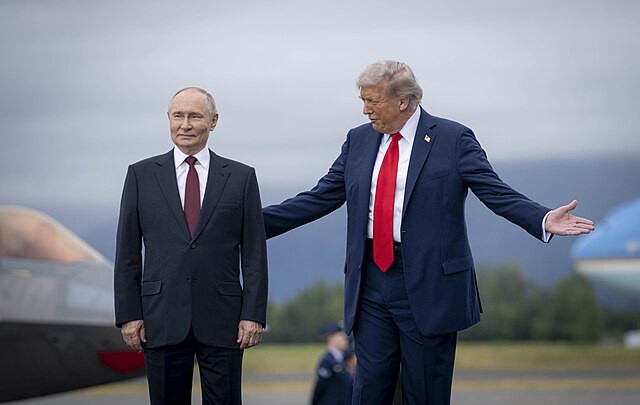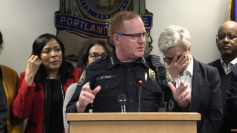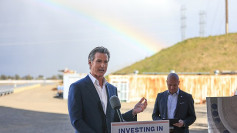The Trump administration's accelerated push for a negotiated settlement in Ukraine entered a precarious phase on Tuesday, as U.S., Russian and Ukrainian officials gathered in Abu Dhabi for a new round of talks-just hours after Russia unleashed one of its most intense overnight assaults on Kyiv, killing at least seven people. The juxtaposition underscored the fragility of efforts to formalize what Washington describes as an "updated and refined peace framework" following negotiations with Ukraine in Geneva.
Army Secretary Dan Driscoll, who has emerged as President Trump's chief envoy for Ukraine talks, arrived in the United Arab Emirates on Monday. His spokesperson, Lt. Col. Jeff Tolbert, confirmed that "Secretary Driscoll and team have been in discussions with the Russian delegation to achieve a lasting peace in Ukraine. The talks are going well and we remain optimistic. Secretary Driscoll is closely synchronized with the White House and the U.S. interagency as these talks progress."
A Ukrainian team led by military intelligence chief Gen. Kyrylo Budanov also traveled to Abu Dhabi, conducting discussions with both American and Russian representatives. The meetings occurred after U.S. officials agreed to strengthen elements of a security guarantee requested by Kyiv, revising an initial 28-point peace proposal down to 19 points.
Ukrainian officials appear cautiously encouraged by the revised framework. Zelensky's national security adviser, Rustem Umerov, said the two sides had "reached a common understanding on the core terms of the agreement discussed in Geneva." He added that Ukraine hopes to arrange a visit for President Volodymyr Zelensky to finalize terms with President Trump "at the earliest suitable date in November."
The Kremlin, however, signaled that revisions to the U.S. proposal may test Moscow's patience. Russian Foreign Minister Sergei Lavrov warned that any plan must reflect the "spirit and letter" of commitments President Putin believes he reached with Trump at their Alaska summit. "If the spirit and letter of Anchorage are erased from the key understandings we have documented, then, of course, the situation will be fundamentally different," Lavrov said.
Even as diplomatic overtures continue, European leaders expressed unease with the direction of the talks. Finland's president, Alexander Stubb, said after speaking with Zelensky and NATO Secretary-General Mark Rutte that "the coming days would be decisive," adding, "The future of Ukraine is for Ukraine to decide, and European security is for Europe to decide." French President Emmanuel Macron warned against any arrangement resembling a "capitulation," stating, "What was put on the table gives us an idea of what would be acceptable for the Russians. Does that mean that it is what must be accepted by the Ukrainians and the Europeans? The answer is no."
As diplomats shuttled between meetings, Moscow pressed its military advantage overnight. Kyiv Mayor Vitali Klitschko reported explosions shortly after 1 a.m., with additional strikes around 7 a.m. The attacks ignited fires, damaged high-rise buildings and cut power and heat across the capital. Klitschko said "at least two people died" in the initial strike and warned "there may be people under the rubble," while later casualty updates raised the death toll to seven. Ukraine's President Zelensky said Russia fired "460 drones and 22 ballistic missiles," calling for uninterrupted Western assistance: "Weapons and air defence systems are important, as is the sanctions pressure on the aggressor. There can be no pauses in assistance."
The Ukrainian leader reiterated that negotiations cannot embolden Moscow. "What matters most now is that all partners move toward diplomacy together, through joint efforts. Pressure on Russia must deliver results," he said. In a warning posted before the strikes, Zelensky cautioned that "Russia will not ease its pressure on Ukraine," urging citizens to treat air-raid alerts "very seriously."






